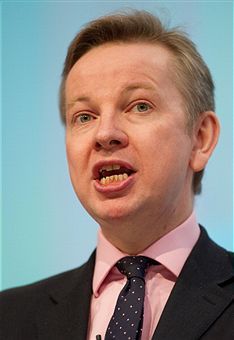 If it is GCSE results day, there must be a row about government education policy. True
to form, the NASUWT — a union whose role often appears to be to make the NUT look moderate by comparison — has come out with a comically hyperbolic statement accusing the coalition of a
‘betrayal of young people’ because of its decision to reform the
educational maintenance allowance.
If it is GCSE results day, there must be a row about government education policy. True
to form, the NASUWT — a union whose role often appears to be to make the NUT look moderate by comparison — has come out with a comically hyperbolic statement accusing the coalition of a
‘betrayal of young people’ because of its decision to reform the
educational maintenance allowance.
What the NASUWT statement ignores is that the real betrayal of young people has been pushing them into doing courses and qualifications that condemn them to a life of low-skilled labour at best. Last year, only 16 per cent of pupils achieved a C or above in English, Maths, a foreign language, a science and one of history of geography. Amongst those children on free school meals, this figure fell to four per cent.
Instead, of sitting proper, demanding exams that would prepare them for further study or the workplace, students were encouraged to do various ‘vocational’ qualifications that were given equivalence with GCSEs. There is something almost obscene about the fact that one of the modules for the ‘Certificate of Personal Effectiveness Level 2’ taught children how to claim unemployment benefit. As one Department of Education source commented to me today:
“The unions have inflicted untold damage on our education system and children’s lives. They colluded with the Labour Party in a league table system that encouraged hundreds of thousands of children to enter courses that were of little or no value. For years now the number of children doing the subjects that employers and universities value most has been going down while non-academic subjects have risen. The unions and Labour’s legacy is one in three leaving primary school unable to read, write and add up properly and our education system falling behind the rest of the world.”
One of the good things about the coalition’s introduction of the EBac — a pupil has to get better than a C in English, Maths, a science, a foreign language and one of history or geography to receive it — is that it will prod more schools into putting pupils in for these exams and expose those schools deliberately pursuing a policy of low expectations. Combine this with the expansion of the academies programme and the introduction of free schools and one can see why so many in Downing Street believe that education reform is their best chance of a positive legacy.







Comments